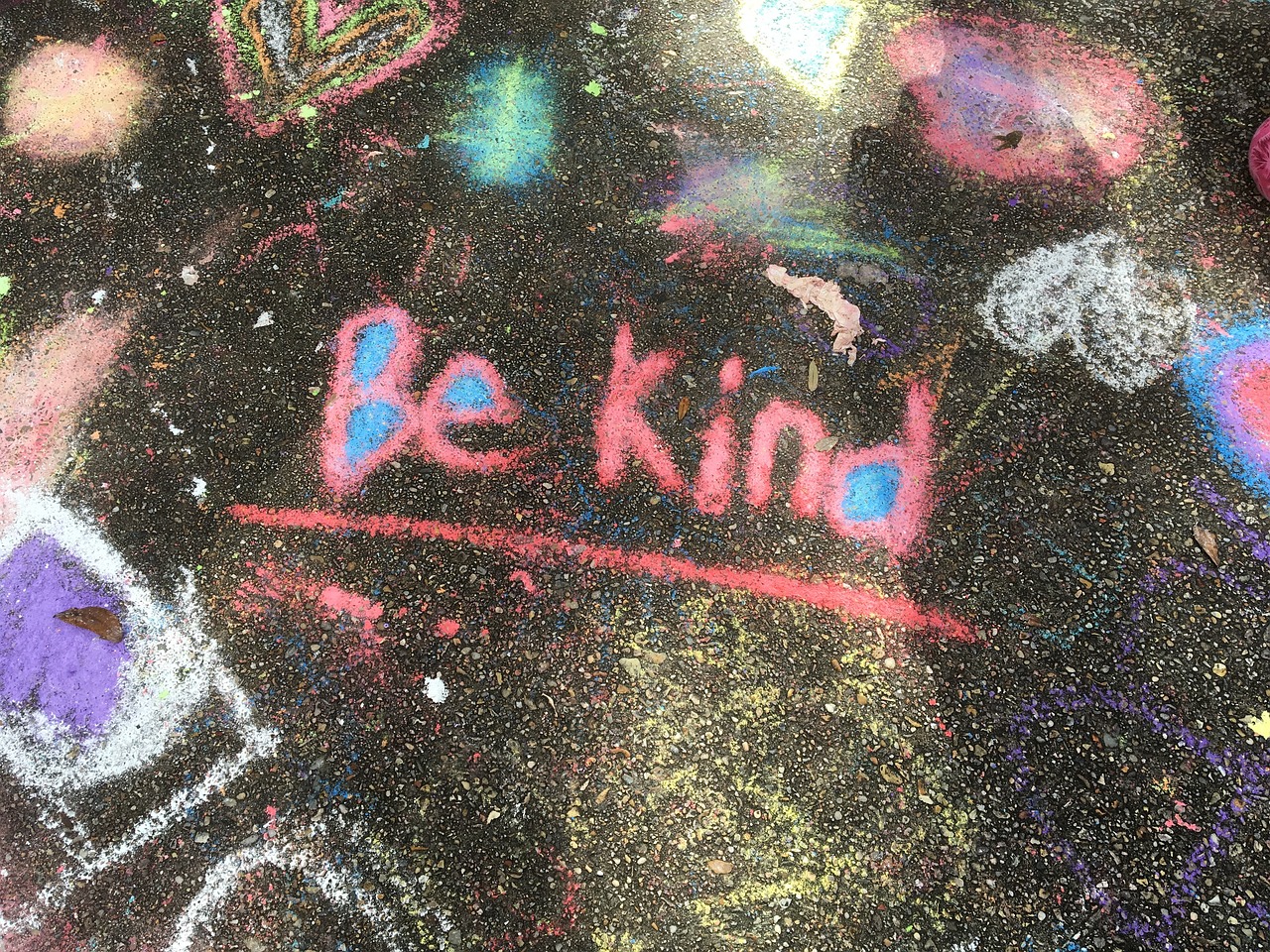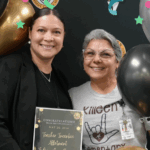In our increasingly diverse world, it’s more important than ever to instill values of empathy, kindness, and inclusion in our children – especially in light of the serious problem of bullying. Bullying can have a devastating impact on kids, indeed it can, and it’s our responsibility to teach them how to stand up to it and create a kinder, more inclusive world.
For the same reason, furthermore, I’m sharing these 10 powerful quotes with you that denounce bullying and applaud the richness of diversity and inclusion. These quotes are perfect for sparking meaningful conversations with your kids and students – wow! – and they can help to inspire positive change.
Here are the 10 quotes to combat bullying and promote inclusion
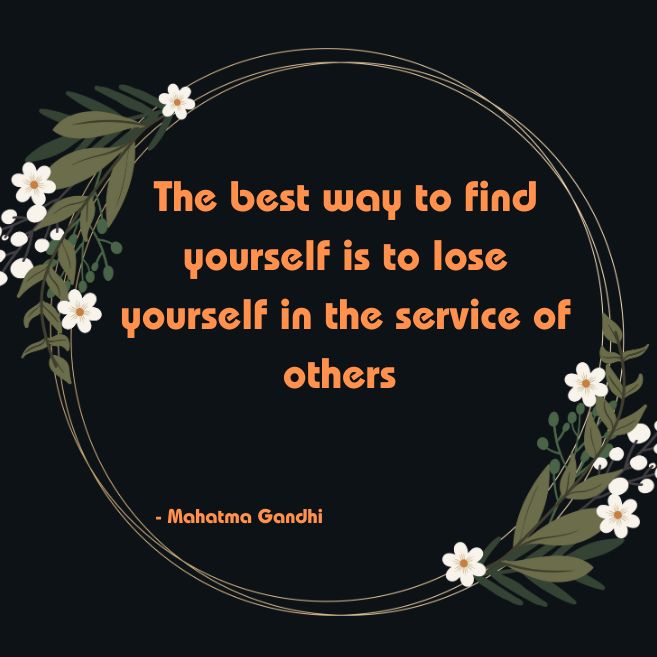
Explanation of the quote
Mahatma Gandhi’s words here hold a real gem of wisdom. He is telling us that when we shift our gaze from ourselves to serving others, something magical happens. It’s like finding a hidden treasure in the act of kindness, empathy, and selflessness.
Think about it—kindness is like a superhero power against bullying. It’s our shield against cruelty. When we champion kindness, we are telling bullies, ‘Not on our watch.’ It’s the ultimate game-changer, creating a warm, inclusive cocoon.
Now, service? That is an example of inclusiveness in action. It’s the bridge we make for people who feel excluded, the hand we extend to draw them in. It’s as if, one act at a time, you are knocking down walls and saying, ‘You belong here.’
And remember, Gandhi, the guy who spoke these words, he walked the talk, standing for unity and peace. So, his wisdom isn’t just words; it’s a legacy we can carry forward in the battle against bullying and the journey toward a more inclusive world.
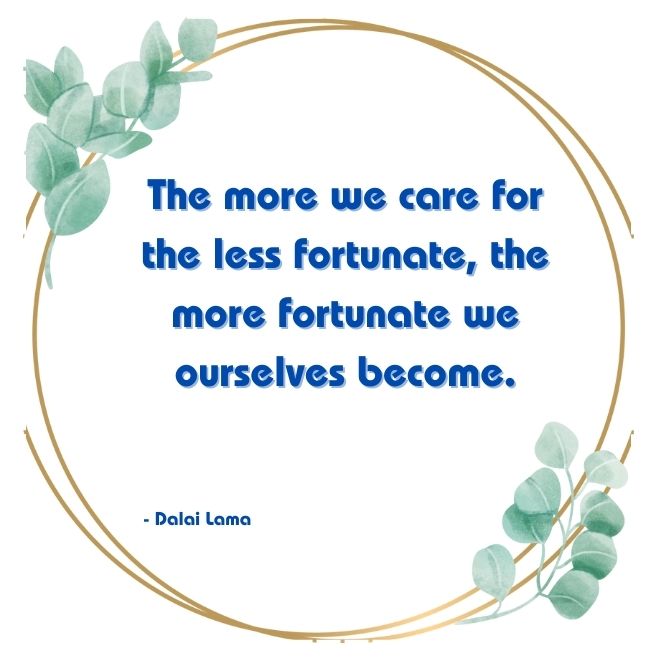
Explanation of the quote
Dalai Lama, the wise soul known for his pearls of wisdom on compassion and peace, hits us with a truth bomb here. He is saying that when we open our hearts and reach out to those in need, it’s like a double win. Not only do we uplift them, but we also fill our own cups with a warm, fuzzy glow. It’s like a kindness boomerang that comes right back to us.
Now, think about this—the quote’s got a built-in anti-bullying mechanism. When we genuinely care for others, it’s like we are putting up an invisible shield against cruelty. Our empathy and kindness create a force field of understanding and compassion.
And here is the kicker: caring for the less fortunate? That’s a full-blown declaration of inclusion. It’s like telling the world, ‘We are all in this together.’ It’s the enemy of bullying and discrimination, helping us build a fairer, kinder world for everyone.
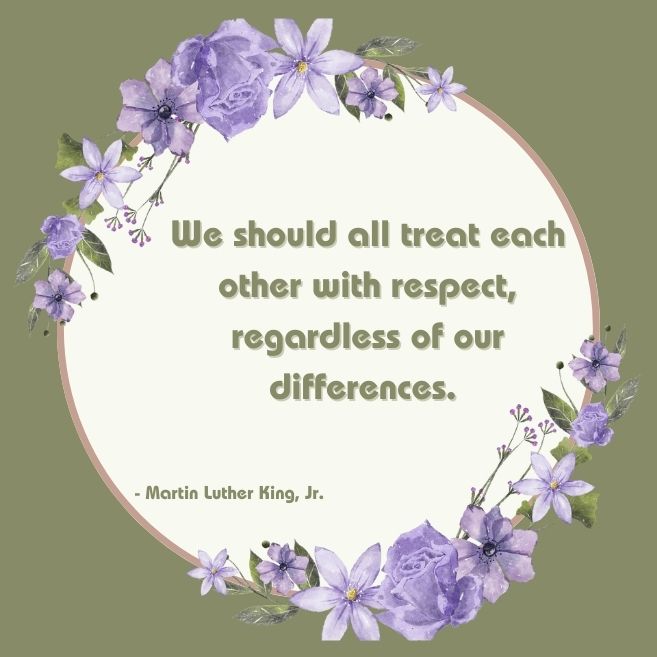
Explanation of the quote
This quote from the prominent civil rights leader encapsulates the essence of equality and mutual regard. It emphasizes the fundamental principle that every individual, regardless of their background or distinctions, deserves respect and dignity.
The quote highlights the paramount importance of treating others with respect. Respect is a cornerstone in the fight against bullying, fostering an environment where differences are acknowledged and celebrated.
The phrase “regardless of our differences” underscores the need for inclusion and acceptance. It champions the idea that diversity is not a barrier but an asset, promoting a sense of belonging that counters bullying.
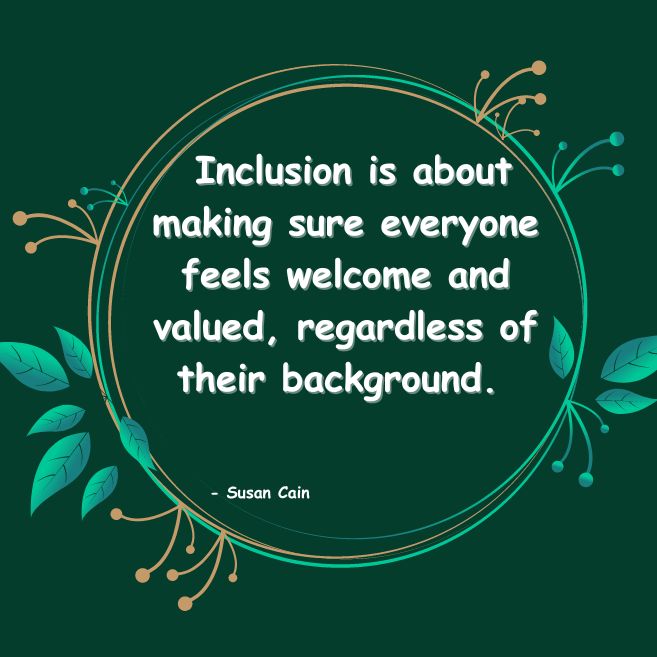
Explanation of the quote
This quote conveys the essence of inclusion as a transformative force. It underscores the importance of creating an environment where every individual, regardless of their diverse background, feels a genuine sense of belonging and appreciation.
The quote emphasizes the fundamental concept of inclusion. It’s not just about presence; it’s about ensuring that everyone’s voice is heard and that they feel valued. This is essential to combat bullying, as it creates a sense of worth and belonging.
The phrase “regardless of their background” highlights the need to embrace diversity and resist discrimination. It promotes an inclusive atmosphere where differences are celebrated rather than used as a basis for exclusion or bullying.
Susan Cain, known for her advocacy of introverts and promoting quiet strength, brings credibility to the message. Her quote aligns with the principles of combating bullying and fostering inclusion.
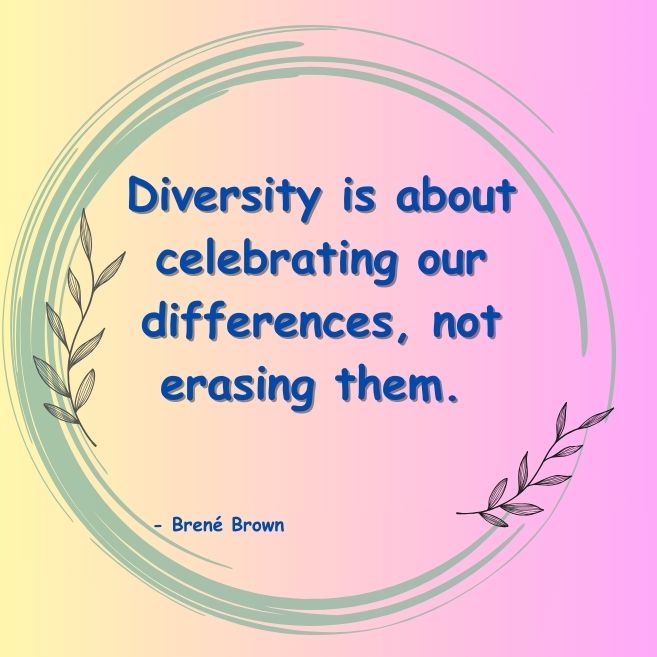
Explanation of the quote
This quote encapsulates the essence of embracing diversity as a source of strength rather than trying to conform or diminish it. It emphasizes the value of recognizing and appreciating the unique qualities and perspectives that each individual brings.
The quote highlights the concept of diversity as a cause for celebration. It implies that by embracing differences, we create a richer and more inclusive environment that opposes bullying.
The phrase “not erasing them” reinforces the idea that diversity should not be suppressed or eliminated. Instead, it should be acknowledged, respected, and woven into the fabric of inclusive communities.
Brené Brown is renowned for her work on vulnerability, courage, and shame resilience. Her quote aligns with the principles of fostering inclusion and standing against bullying by emphasizing the value of authenticity and diversity.
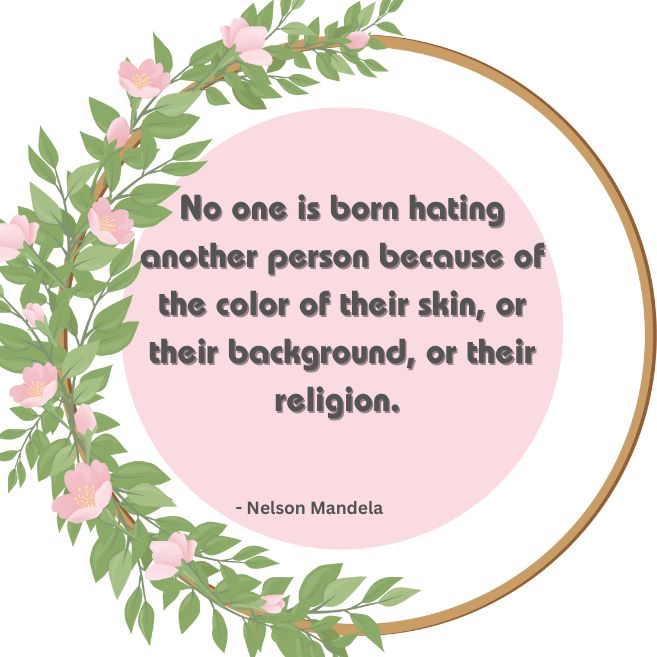
Explanation of the quote
This quote communicates the profound idea that prejudice and discrimination are learned behaviors, not inherent traits. It speaks to the innate innocence of individuals and emphasizes that intolerance is a societal construct that can be unlearned.
The quote highlights the absence of hatred at birth and underscores the role of learned behaviors in perpetuating discrimination. This notion is vital in addressing the roots of bullying, which often stem from prejudice.
Also by mentioning specific aspects of diversity, such as skin color, background, and religion, the quote promotes the recognition and acceptance of differences. It advocates for an inclusive environment where these differences are not used as grounds for bullying.
Nelson Mandela, an iconic figure in the fight against apartheid and for racial equality, lends significant credibility to the message. His quote aligns perfectly with the principles of combating discrimination and promoting inclusion.
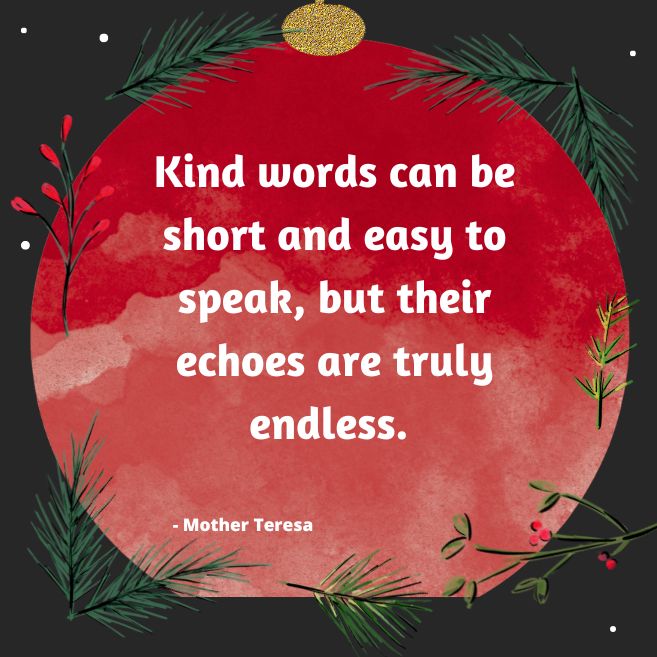
Explanation of the quote
A Nobel laureate, who is widely recognized for her humanitarian work and unwavering commitment to serving the marginalized, Mother Teresa in this quote encapsulates the enduring impact of even the simplest acts of kindness and compassion. It underscores the idea that small gestures of goodwill can create a ripple effect, influencing others positively.
The quote emphasizes the significance of kindness as a powerful force against negativity and cruelty. It promotes empathy, a crucial component in combating bullying, by encouraging individuals to consider the impact of their words and actions on others.
The notion of “endless echoes” suggests that acts of kindness have a lasting and far-reaching impact. In the context of inclusion, it implies that even small acts of kindness contribute to building a more welcoming and inclusive environment.
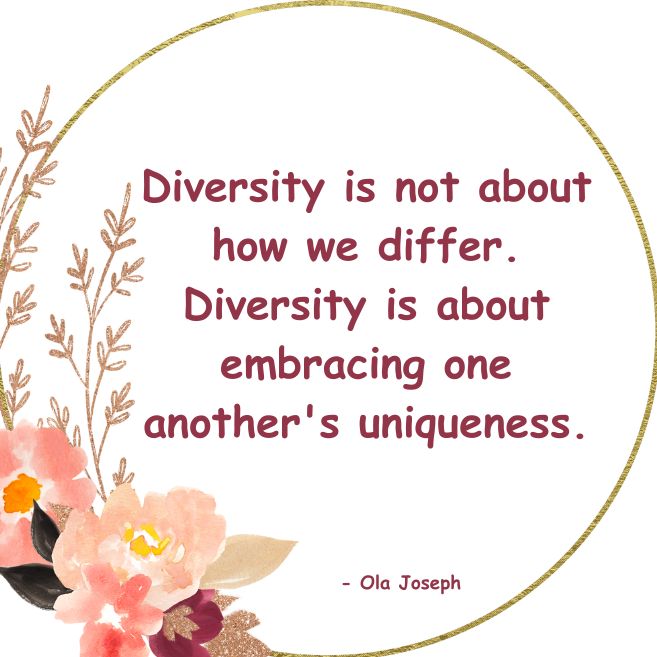
Explanation of the quote
The quote attempts at conveying diversity as an opportunity for mutual appreciation and understanding. It shifts the focus from viewing differences as points of contention to celebrating them as sources of strength.
Diversity isn’t about the mere existence of differences; it’s about actively welcoming and cherishing those distinctions. This mindset promotes inclusion by fostering an environment where uniqueness is celebrated and bullying is discouraged.
The phrase “embracing one another’s uniqueness” underscores the importance of accepting and valuing individuality. It promotes a culture of respect and appreciation, creating a space where bullying has no place.
Ola Joseph’s perspective on diversity aligns with the principles of fostering inclusion and combating bullying by emphasizing the value of embracing differences and promoting unity.
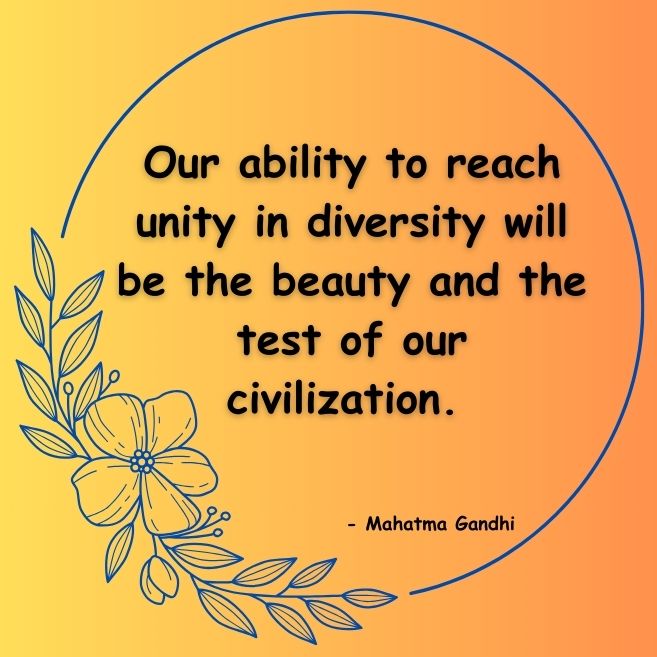
Explanation of the quote
This quote eloquently captures the idea that a truly civilized society is one that can embrace and unify its diverse elements. It underscores the beauty and strength that come from unity despite differences and challenges.
The quote also highlights the concept of “unity in diversity,” emphasizing that true strength lies in embracing differences and fostering unity. This idea promotes inclusion by encouraging societies to come together despite differences, reducing the space for bullying rooted in discrimination.
By connecting unity in diversity with the beauty and test of civilization, the quote suggests that the ability to inclusively coexist reflects the maturity and progress of a society. It implies that a truly advanced civilization is one that champions inclusion and shuns bullying.
Gandhi’s legacy in advocating non-violence, tolerance, and unity adds significance to the message. His quote aligns with the principles of combating bullying and promoting inclusion, emphasizing the importance of unity and diversity.
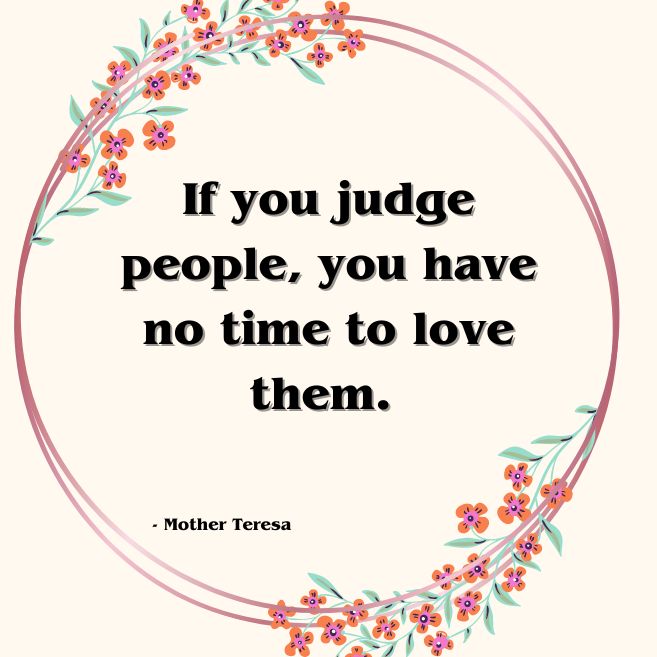
Explanation of the quote
This quote carries a profound message about the negative consequences of judgment and the importance of unconditional love and acceptance. It suggests that passing judgment on others can consume our energy and divert our focus from fostering genuine connections.
The quote highlights the contrast between judgment and love. It implies that by suspending judgment and embracing acceptance, we create a more inclusive environment that rejects bullying rooted in prejudice or bias.
The phrase “no time to love them” underscores the idea that judgment hinders our capacity to extend love and compassion. In an inclusive atmosphere, individuals are encouraged to withhold judgment, making room for empathy and kindness.
Mother Teresa’s dedication to serving the marginalized lends credibility to the message. Her quote aligns with the principles of combating bullying and promoting inclusion by emphasizing the importance of empathy and unconditional love.
Discussion prompts and activities to engage children in conversations about bullying and inclusion
Engaging children in meaningful discussions about bullying and inclusion is vital to their development as empathetic and responsible individuals. Here, we will explore a range of discussion prompts and activities designed to equip parents and educators with effective tools for addressing these critical topics.
The power of kindness
Prompt: Begin by discussing the significance of kindness in daily life. Ask children to share examples of times when they were kind to someone or experienced kindness from others.
Explanation: This prompt helps children recognize the positive impact of kindness, setting the stage for discussions on bullying prevention and inclusion.
Understanding differences
Prompt: Encourage children to talk about differences they have observed among their peers. Ask them how these differences make them feel and if they have ever felt excluded or included based on their own differences.
Explanation: This prompt fosters empathy by helping children reflect on the importance of accepting and appreciating diversity.
Bullying scenarios
Prompt: Present hypothetical bullying scenarios and ask children to discuss how they would respond as bystanders. Encourage them to brainstorm ways to support the victim and prevent bullying.
Explanation: This activity promotes empathy and equips children with practical strategies to combat bullying.
Activities for hands-on learning
Storytelling and roleplaying
Activity: Share age-appropriate stories or scenarios involving characters who face bullying or exclusion. Have children take on the roles of these characters and brainstorm solutions to the challenges they encounter.
Explanation: Storytelling and role-playing help children develop empathy and problem-solving skills while exploring real-life situations.
Creating an inclusive art project
Activity: Engage children in an art project where they create a mural or collage celebrating diversity. Encourage them to use various materials and symbols that represent inclusion and unity.
Explanation: Art projects provide a creative outlet for expressing feelings and ideas about inclusion, reinforcing the importance of diversity.
Kindness challenge
Activity: Launch a kindness challenge where children set goals for performing acts of kindness within their family, school, or community. Keep a record of their acts of kindness and discuss the impact.
Explanation: The kindness challenge instills a sense of responsibility and demonstrates the tangible results of compassion and inclusion.
Guidelines for effective discussions
Active listening
Guideline: Teach children the art of active listening. Encourage them to listen without interrupting and ask questions to understand others’ perspectives.
Explanation: Active listening is a vital skill for empathy and productive discussions.
Respect for diverse opinions
Guideline: Emphasize the importance of respecting different viewpoints, even if they differ from their own. Teach children that healthy discussions can lead to a deeper understanding of issues.
Explanation: Fostering respect for diverse opinions encourages open dialogue and builds tolerance.
To conclude, engaging children in discussions and activities centered on kindness, diversity, and inclusion equips them with essential life skills. These conversations help create a generation that not only recognizes the harmful effects of bullying but actively contributes to a more inclusive and empathetic society. By following these discussion prompts and activities, parents and educators can play a pivotal role in nurturing compassionate, responsible, and inclusive individuals who will make a difference in the world.
